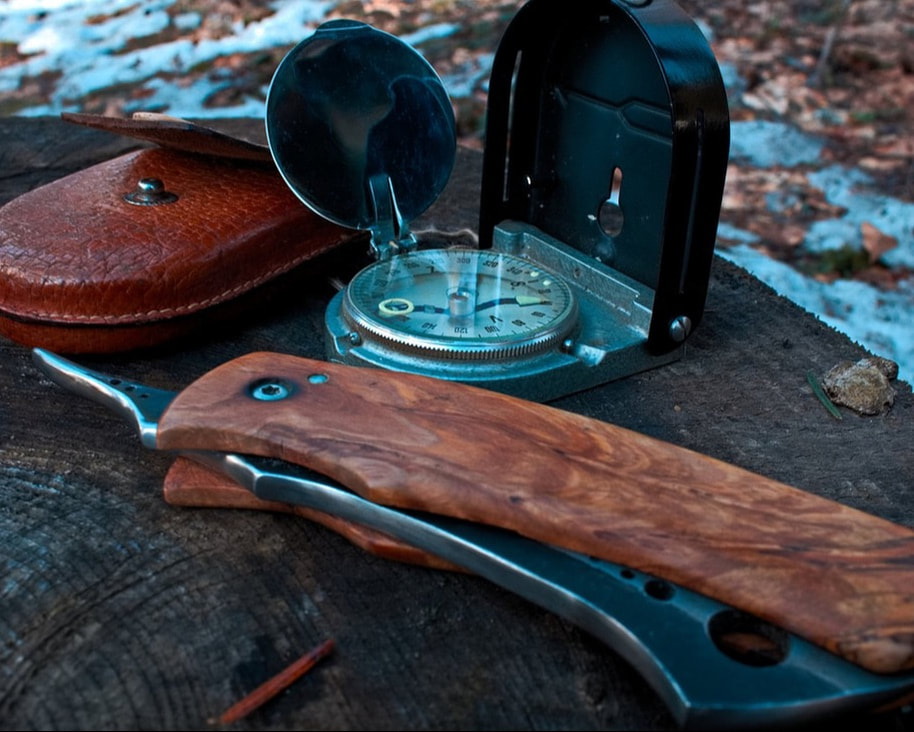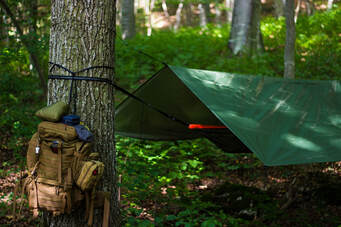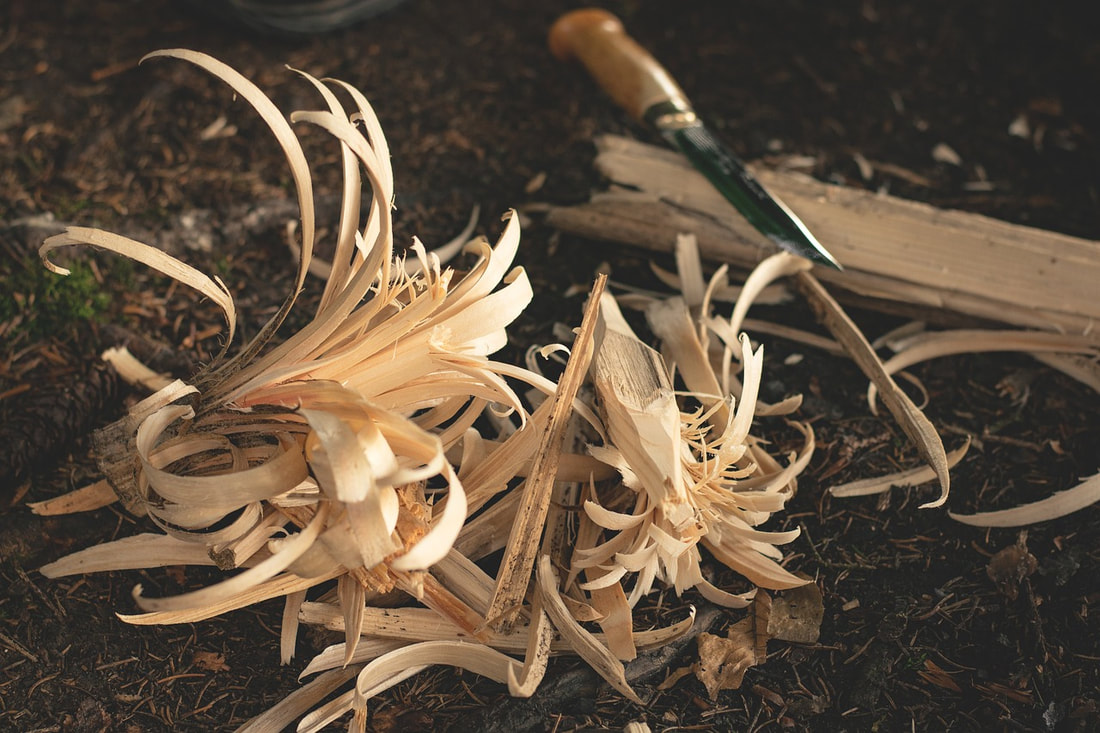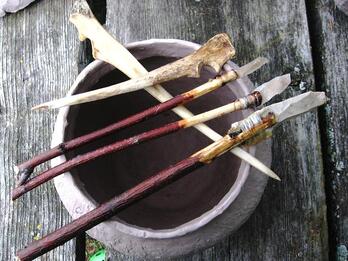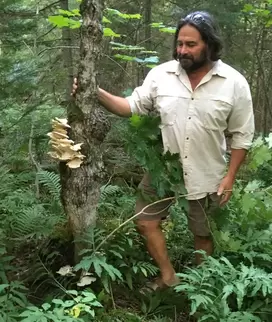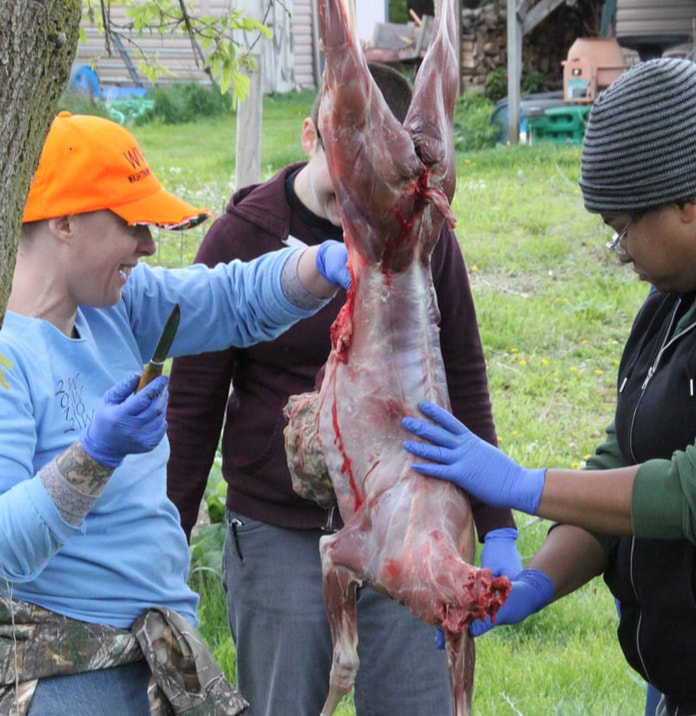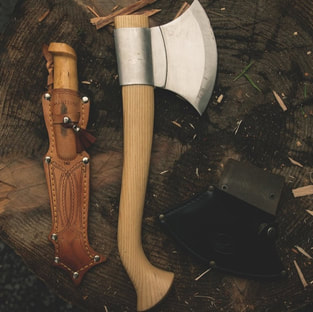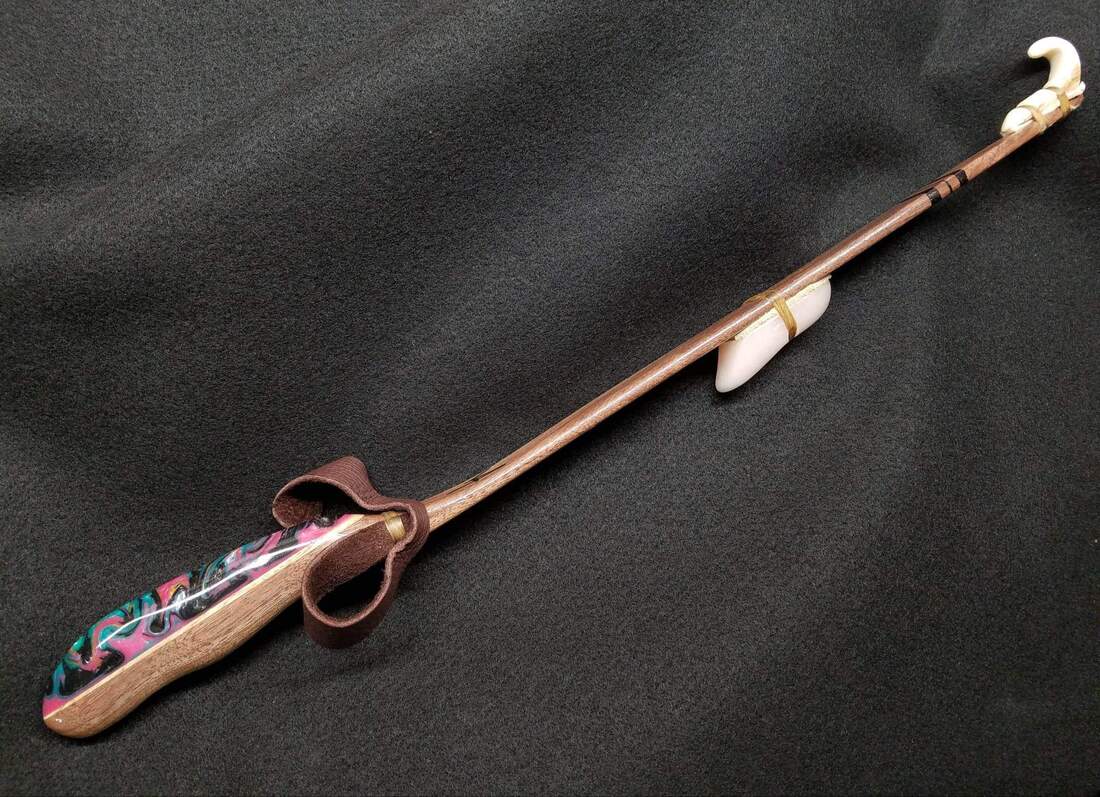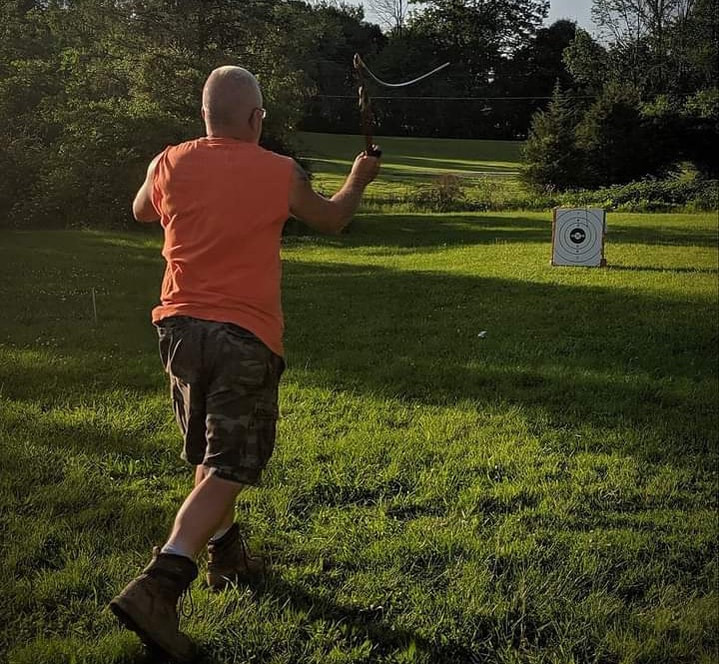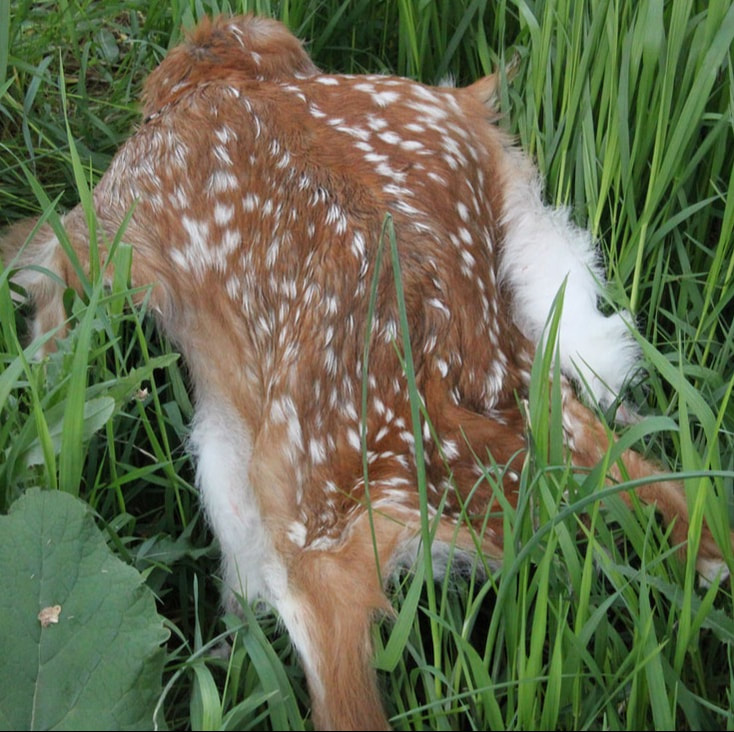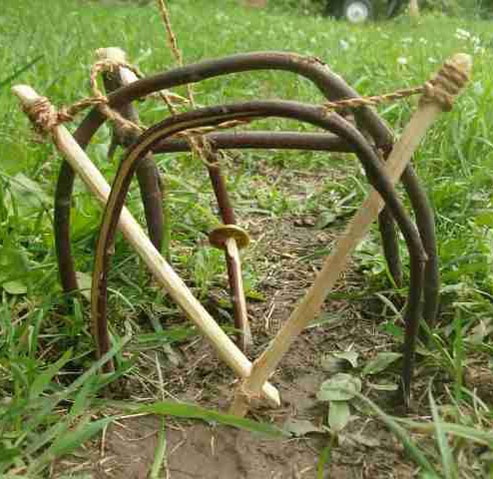bushcraft
|
Wilderness Survival
Going on a hike or camping in southern Michigan can be a fun and exciting experience. It can also become dangerous if your plans, the weather, or the unexpected happens. This course will give you some of the basic skills you will need to keep yourself safe in a wilderness environment. Below are a few of the items covered in this course:
Course Fee: $120 - Supply Fee: $20 Location: Folk School
Bushcraft, Survival,
& Ancestral Skills When making your way into the wilderness the most important skills needed for survival include fire making, foraging food, tracking, trapping, hunting game, and shelter-building using basic bushcraft gear. This class is a lecture that examines the similarities and differences between the three schools of thought that are present for minimalist outdoor skills. This serves as an introduction to the hands on skills that will be covered in future classes.
While this class is not required before taking another Bushcrafting class, it is VERY useful. Course Fee: $35 - Supply Fee: $0 Location: Folk School
Bushcraft Fire Skills
Starting a fire, without matches or a lighter, is a skill that has been passed on for generations and is essential when heading out in the wilderness. This course is designed to teach you essential fire-lighting skills in a safe and controlled manner, from understanding natural tinders to ignition methods using a lens, ferro rods and batteries. How to safely situate your fire, in such a way to minimize damage to the environment is covered, as well as how to put it out and leave no trace. The course is enriched with the history of fire-lighting and essential tips and tricks on how to store tinder and source it even in the wettest of conditions. We will even cover some basic field cookery ideas. Each method will be demonstrated and you will get plenty of time to try them yourself - this is very much a hands-on course! How each fire-lighting method relates to different survival ordeals you face, is an important element in our course. Experience this lost art of fire and rekindle this connection to our survivalist past.
Course Fee: $80 - Supply Fee: $20 Location: Folk School
Basic Stone Tools
Before the advent of metal-working all of our ancestors depended on instruments made out of rock for survival. Stones can be shaped into a variety of functional tools, such as arrowheads, knives, hatchets, and scraping & grinding implements. Having a basic understanding of how to shape and use rock is an invaluable wilderness survival skill.
In this unique workshop, participants learn how to make flakes from cobbles of flint, then modify them into a variety of cutters and scrapers. From there we will mount some of the choice flakes in handles using natural glues and sinew. Once mounted we will take the tools for a test drive bye using them on bone, wood, and hide. |
Wild Mushroom
Identification Workshop The goal of this workshop is to learn about identifying mushrooms and the places that they grow. Students will learn to look for certain trees and plants that can be good indicators of edible and medicinal seasonal mushrooms, as well as identify those mushrooms that are poisonous. Ethical forging standards, harvesting techniques, cleaning, preserving, and preparing edible and medicinal mushrooms will be discussed and demonstrated. We can promise this workshop will give you a new appreciation for wild mushrooms in all their glory.
No previous experience necessary. Course is held at Park Lyndon in Chelsea, MI. Lots of trail walking on uneven ground and up and down small hills. Be prepared for cool or warm weather and the possibility of muddy trails. Course Fee: $60 - Supply Fee: $0
Location: Park Lyndon
Roadkill 101
It has been stated that thousands of pounds of high quality protein and fat are wasted by our automobile culture every year. If we are able to transcend the stigmas and jokes and learn the real possibilities of roadkill meat, we can turn a tragedy into a bounty and give honor to those animals by putting them to use.
In this one day course, you will learn about the safety, legality, logistics, and ethics surrounding roadkill salvage. Starting with how to tell if an animal is safe to eat, instruction will proceed to discuss and demonstrate the tools and techniques to create a Roadkill Kit. Students will then learn about basic animal breakdown methods and kitchen care. This class has a hands-on approach so come with an open mind and wear old clothes, and be prepared to never see your daily drives in the same way.webly Legal methods will be focused on the laws in Michigan, all students are encouraged to investigate proper procedures for their own state or locality. Learn more about Roadkill from this 2018 Car & Driver article by Ben Hewitt Course Fee: $90 - Supply Fee: $30
Location: Folk School
Bushcraft Tools & How to Use Them
Bushcraft, used interchangeably with “wilderness skills,” focuses on using resources available in the natural environment for survival. Bushcraft tools in one form or another have been around since the Stone Age era when the survival of humans depended solely on these tools. Primitive bushcraft tools like sticks, bones, stones, and other such things found in nature were used by early humans to create shelter, spears, arrows, fire, etc.
This course is a survey of bushcraft tools and how to use them. Discussion and examples of bushcraft knives, including the use and care, is the heart of every tool pack. Bushcraft hatchets, axes, and saws will be displayed with an emphasis on learning how to properly use them. We will also look after a few more specialized tools, such as awls and spades. A large spectrum of tools will be available for students to try out and examine. A special emphasis will be placed on sharpening skills and each student will make their own bushcraft sharpening board, and take it home. Course Fee: $75 - Supply Fee: $25 Location: Folk School
Atlatl and Dart Workshop
Long before the bow and arrow there was the atlatl and dart. This ancient weapon could throw a spear or dart far enough and with enough force to penetrate a mammoth’s hide. Native Americans used this hunting weapon for the last 10,000 years. Simply put, an atlatl is a spear-thrower and a dart is long spear. Atlatl artifacts have been found on almost every continent and were only overshadowed by the invention of the bow & arrow.
This one-day workshop will lead you through the steps in crafting an atlatl. Each participant will learn how to shape a wood stave to create the three main components: the hook, the grip, and the shaft. Along the way you will learn about its history and the different designs of this ancient weapon. before making your own atlatl and dart. Then, you’ll test your skill and craftsmanship is just-for-fun competition. Upon completion of your atlatl and darts, you’ll practice putting your finished product to work on targets in a large open field. 16 years old (with adult present) and up Course Fee: $105 - Supply Fee: $25 Location: Folk School
|
Registration will open soon for the following courses
|
Small Game Hide Tanning
Don't throw that rabbit skin away! Turn it into a durable, breathable, soft, washable fabric to use for clothing, bags or beadwork. You'll learn brain tanning, a method used for centuries, as well as bark tanning. How to skin an animal, prepare the hide, apply tanning mixture and smoke it. You'll find yourself deeply engaged in this hands-on, transforming project
|
|
Primitive Trapping
In Bushcraft, survival is a lazy man’s game. The goal of survival is to burn less calories than you expend daily. Hunting requires a great expenditure of calories in order to procure that meat. That is why trapping is such a pivotal skill because traps will work for you while you’re sleeping or when you’re at camp whittling a stick. In this weekend course we will explore basic building, setting and evaluating of primitive traps & snares. We will learn basic animal habits, baiting strategies, and how to force/fence your sets to better your success rate. The traps will be created using natural materials available from the forest. We will also only build and use humane traps (also called a live animal trap) that contain an animal without injuring or killing. The first session focus on deadfall traps while the second session will concentrate on snares. The goal of this course is to give you the skills necessary to make and set, effective traps and snares.
|

